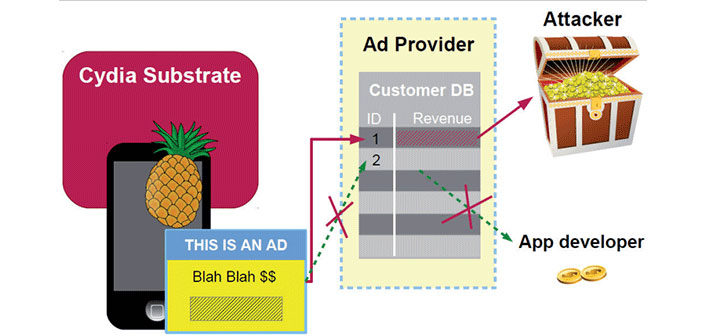For a couple of days circulating the news of a malware is not too worrying that took office in 75,000 iPhone ” jailbreak “.
This does not steal sensitive information and data of the user, nor try to embezzle money. Here’s what it does. Apple has created an ecosystem armored for your iPhone, easy to use and virtually impenetrable from the point of view of safety. When the user crosses the boundaries imposed, even the Apple smartphone is plagued by all the problems experienced by the competitors of the technology industry, especially those related to malware.
In other words, the App Store is a platform rigidly controlled by Apple, which is unlikely to be widespread applications containing malicious code. But when you jailbreak and install applications not approved by Apple (not necessarily illegal applications), all the systems developed by Apple fall, and there is the possibility of encountering viruses and malware.
A new note of the Virus Bulletin released in recent days shows that, in particular, a single malicious program called AdThief infected ” at least ” 75,000 iOS devices to date. This is not a virus is extremely dangerous for the user: the code does not go in search of personal information, and does not try to steal money from bank accounts incorporated in the device and integrated services.
The only purpose of the software is to manage the banners of the various app installed, offering selected content. While a malware of this type does not directly harm the user the damages that does within the advertising industry are huge. At the time of this writing, the malware is able to steal sales from the display of about 22 million banner, shown in the 75,000 iPhone infected.
You cannot estimate the dollar value of the fraud, ” Whenever you see a banner or use the lookup to the same on an infected device, the corresponding revenue go to those who have developed the malware, and not the developer or the Subsidiary ” are the words of Axelle Apvrille, researcher safety. AdThief was discovered in the early days of March.

